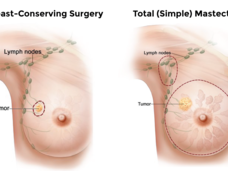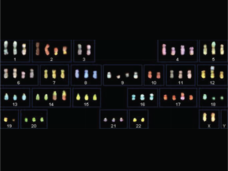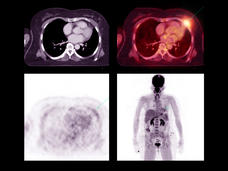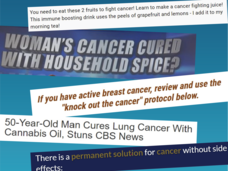September 2021 - Cancer Currents Blog
-
Breast Cancer Surgery Choice May Affect Young Survivors’ Quality of Life
Women with early-stage breast cancer who had one or both breasts surgically removed (a unilateral or bilateral mastectomy) had lower scores on a quality-of-life survey than women who had breast-conserving surgery, a new study has found.
-
Why Have Thyroid Cancer Diagnoses Spiked for US Women?
Women are far more likely than men to be diagnosed with small thyroid cancers that probably would have never caused problems during their lifetime, a new study finds. The results may help explain why thyroid cancer seems to be more common in women.
-
Extra or Missing Chromosomes May Help Cancer Cells Survive Treatment
Aneuploidy—when cells have too many or too few chromosomes—is common in cancer cells, but scientists didn’t know why. Two new studies suggest that aneuploidy helps the cells survive treatments like chemotherapy and targeted therapies.
-
Belzutifan Approved to Treat Tumors Linked to Inherited Disorder VHL
FDA has approved belzutifan (Welireg) to treat adults with von Hippel-Lindau disease (VHL) who have tumors of the kidney, brain, nervous system, or pancreas. The drug may help these patients avoid or delay surgery by shrinking their tumors.
-
Seeing a Promising Future for Progress against Childhood Cancer
NCI Director Dr. Ned Sharpless discusses progress against childhood cancers, like CAR T-cell therapy and collecting more comprehensive data on children and adolescents with cancer, and the need to better address disparities in childhood cancer.
-
Quitting Smoking Improves Survival in People with Lung Cancer
Quitting smoking after a diagnosis of early-stage lung cancer may help people live longer, a new study finds. The study, which included more than 500 patients, also found that quitting smoking delayed the cancer from returning or getting worse.
-
Addressing the Challenges of Cancer Misinformation on Social Media
Misinformation about cancer is abundant on social media, including stories that describe miraculous results from treatments that are unproven and potentially harmful. Researchers are studying misinformation and its impact on people with cancer.
-
Gut Microbes May Influence How Well Radiation Therapy Works against Cancer
New research suggests that fungi in the gut may affect how tumors respond to cancer treatments. In mice, when bacteria were eliminated with antibiotics, fungi filled the void and impaired the immune response after radiation therapy, the study found.







